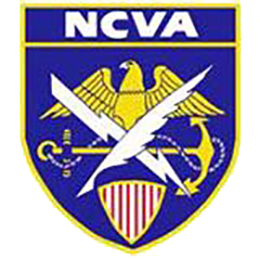Capitalizing On the Past
British playwright George Bernard Shaw may have been cynical when he wrote that what we learn from history is that we learn nothing from history. It is certain, however, that we will not learn much from our past if we cannot study records or histories. Individuals might rely on their personal knowledge and memories, but they often vary widely about crucial events and what they mean. Even documents may not tell the full story, of course, and often reflect biases of the originator. Neither may be helpful without the other. In the face of these limitations and cautions, a case can be stated in favor of formal programs to preserve and protect an institutional memory.
- Written by: Raymond P. Schmidt
- Parent Category: History
- Category: Capitalizing On The Past
- Hits: 4249
The Earliest Naval Cryptologic Records
When I reviewed my mission upon arriving as Naval Cryptologic Historian in June 1968, top priority was to locate and safeguard irreplaceable existing histories and records. What I found surprised, informed, disappointed, and motivated me. Documents existed that the writers had prepared as histories and studies. They presented narratives of key events that covered a number of years, but they did not constitute a comprehensive record of our past.
- Written by: Raymond P. Schmidt
- Parent Category: History
- Category: Capitalizing On The Past
- Hits: 4258
Historical Naval Security Group (NAVSECGRU) Records
Operational studies comprise the foundation of knowledge about our past. So do early station files and technical documents and the venerable RPS Library. Protecting and preserving them became my first priority when I assumed responsibility for the history of Naval Cryptology in 1968. Nevertheless, custodians at our records facility outside Washington noted significant gaps in their chronological coverage; additionally, we realized that existing records did not tell a complete story - they left a number of important questions unanswered. As related in earlier articles, valuable missing information surfaced many decades later from unexpected Presidential, Congressional, Navy, and personal family sources (e.g., President Woodrow Wilson, VADM Russell Willson and his World War I NCB device).
- Written by: Raymond P. Schmidt
- Parent Category: History
- Category: Capitalizing On The Past
- Hits: 4223
Creating A Naval Cryptologic History Program
This fourth article continues my account of the Naval Security Group (NAVSECGRU) history programs that originated half a century ago. They laid a foundation for further research and writing about a largely unknown but vital aspect of U.S. Navy and Marine Corps history: the story of naval codes, ciphers, and radio intelligence. In toto, this brief series spans my tenure from June 1968 through my departure nearly fourteen years later. No one explicitly stated a reason the newly-activated NAVSECGRU Command created the Historian billet when it did. So I have looked back at that time in order to reflect on their expectations and to place them in context.
- Written by: Raymond P. Schmidt
- Parent Category: History
- Category: Capitalizing On The Past
- Hits: 5846
First Major Use of Early Naval Cryptologic Records
This fifth article of the series continues my theme that organizations can learn from past experiences. It sets forth a number of ways the Naval Security Group Command capitalized on measures we introduced that created an architecture for systematically producing, preserving, displaying, and promoting use of official records. Our framework for all this was designed to invite—and indeed to encourage—personal accounts as part of the mix.
RADM Ralph Cook served in Navy radio intelligence beginning in World War II. As the first Commander Naval Security Group Command (COMNAVSECGRU), he had personal reasons to preserve the documents and a factual account explaining how Naval radio security and intelligence originated and developed in the early 20th century. Thus, it was no surprise when he personally challenged the office with the ambitious sixth assignment of my tenure soon after I reported on board in June 1968. He directed me to bring Captain Jack Holtwick out of retirement in 1969 and on board the Headquarters (HQ) for II years as a civilian consultant; of course, we were expected to provide him with all necessary support, specifically our early records.
- Written by: Raymond P. Schmidt
- Parent Category: History
- Category: Capitalizing On The Past
- Hits: 4584
Oral History — Greece to the New Deal and Onward
Early Greek historians Herodotus and Thucydides are sometime called the first oral historians. They used statements in their writings by participants and other eye-witnesses to events, including wars among Greek city-states and against the Persians during the 5th century B.C.
- Written by: Raymond P. Schmidt
- Parent Category: History
- Category: Capitalizing On The Past
- Hits: 3685
About The Author
Raymond P. Schmidt conducted research and taught cryptanalysis for three years at the National Security Agency during his first tour of Navy active duty as a commissioned officer. In 1961 he graduated from the Lambros D. Callimahos Intensive Study Program in General Cryptanalysis. Ordered to Key West, Florida in October 1962 at the height of the Cuban Missile Crisis, he was the Naval Security Group Activity Communications Officer during and after the critical months of that crisis. He went on to serve as Senior Operations Watch Officer for the Activity.
- Parent Category: History
- Category: Capitalizing On The Past
- Hits: 5590
